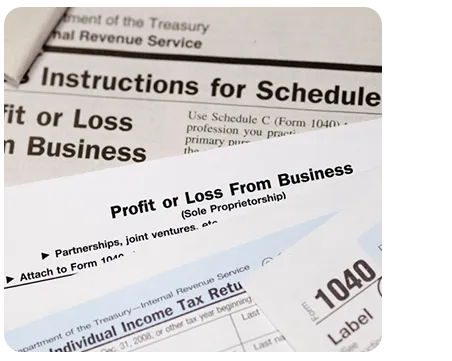

Your Trusted Partner for Financial Growth
From bookkeeping to strategic CFO services,
we're here to protect your wealth and grow your business.
Personal, professional and built on trust.


Your Trusted
Partner for
Financial Growth
From bookkeeping to strategic CFO services, we're here to protect your wealth and grow your business.
Personal, professional and built on trust.

Personal Touch
A family business approach with the expertise
of a large firm for individuals, families and businesses.
Strategic Growth
From basic support to full CFO services,
we scale with your needs.
Trusted Expertise
Decades of experience protecting individuals
and growing businesses in South Jersey.









Services That Grow With You
Whether you need help with the tax preparation
or full CFO-level strategy, we provide the right level of support.
Maximize your savings with strategic tax planning and expert preparation for individuals and businesses.
Keep your finances organized with professional bookkeeping and accounting solutions that keep your finances organized and your business moving forward.
Understand your numbers with detailed financial analysis that guides your business decisions.
Strategic guidance to help your business succeed, at every business stage, from startup planning to expansion.
Get C-level financial expertise without the
full-time cost.
Perfect for growing businesses.
Services That Grow With You
Whether you need help with the tax preparation
or full CFO-level strategy, we provide the right level of support.
Maximize your savings with strategic tax planning and expert preparation for individuals and businesses.
Keep your finances organized with professional bookkeeping and accounting solutions that keep your finances organized and your business moving forward.
Understand your numbers with detailed financial analysis that guides your business decisions.
Strategic guidance to help your business succeed, at every business stage, from startup planning to expansion.
Get C-level financial expertise without the
full-time cost.
Perfect for growing businesses.
Not sure what level of service you need?
Let's chat about your business goals and find the perfect fit.
"We don’t put clients in a box, because no two businesses are the same, and your accounting shouldn’t be either."
- Meggan Ciaccia
Not sure what level of service you need?
Let's chat about your business goals and find the perfect fit.
"We don’t put clients in a box, because no two businesses are the same, and your accounting shouldn’t be either."
- Meggan Ciaccia
More Than Just Numbers
We're a local South Jersey CPA firm that believes financial services should be personal,
approachable and focused on your success.
Your Local
Financial Partners
Founded on the belief of great financial advice and integrity, Ciaccia CPA has a legacy of helping South Jersey families and businesses succeed for over two decades. Ciaccia CPA is more than just an accounting firm, it’s a collaborative, people-first culture where client relationships are developed through regular check-ins, honest conversations, and a shared commitment to growth.

Meggan and her team operate as true partners to the individuals, families, and business owners they serve.
Whether you're an individual, entrepreneur or small business owner looking for part-time support
or a growing company needing full CFO services, we scale our expertise to match your needs and budget.
Family First
---
We treat every client like family,
building relationships that last for generations.
Expert Knowledge
---
Certified expertise with years of experience,
but explained in plain English.
Long-term Partnership
---
We're not just here for tax season,
we're your year-round financial partners.
Let's Start the Conversation!
Ready to take control of your business finances?
We'd love to hear about your goals and see who we can help you achieve them.
Get In Touch!
Have questions? Want to schedule a consultation? We're here to help. Reach out and let's start building your financial future together.







Instagram
LinkedIn